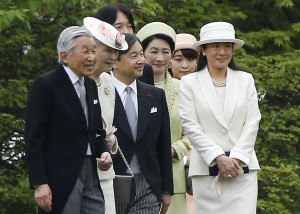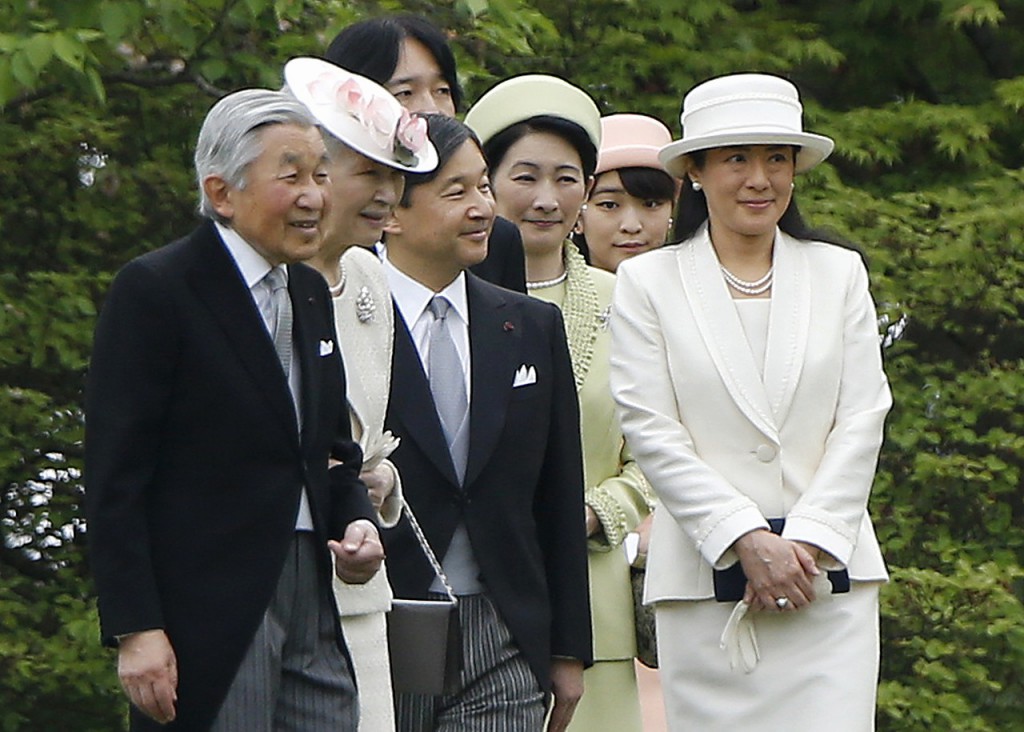The Future of Japan’s Imperial Family

The Future of Japan’s Imperial Family
■ Takashi MIKURIYA, Deputy Chairman of the Advisory Panel on the Emperor’s Abdication,
and the University of Tokyo Professor Emeritus
“The truth of the advisory panel on the Emperor’s abdication,” Bungeishunju, July
“Eliminate the unproductive confrontation between
the Imperial family and the national government,” Chuokoron, July
In an essay in Bungeishunju by Dr. Takashi Mikuriya, the University of Tokyo professor emeritus and deputy chairman of the advisory panel on the Emperor’s abdication, he comments on the special provision to the Imperial House Act enacted by the Diet on June 9 to allow the current emperor to abdicate, emphasizing the public support for this law: “This law was created in response to the 90% of Japanese citizens who agreed with the emperor after hearing his statement last year.”
Mikuriya also explains how a “retirement age” for the emperor was discussed by the advisory panel, but the idea was not adopted due to concerns it might destabilize the imperial family. In response to criticism that a special law for the current emperor only was “unthinkable,” he argues, “Once the law exists, it can be used as precedent, and over time that precedent can be established as customary law.”
Regarding the looming issue of the declining size of the imperial family, Mikuriya calls for the Abe administration to respond quickly: “I would like to see a revision of the Imperial House Act…. For issues dealing with the imperial family, it is probably easier for reforms to be carried out by a conservative politician than by a liberal one.”
In another essay in Chuokoron, Mikuriya writes that sudden news reports such as the engagement of Princess Mako of Akishino “should have been announced by the national government after careful arrangements, and would have been if there was a certain level of stable trust between the government, the imperial family, and the Imperial Household Agency.” However, he also notes his joy and surprise: “This is a very modern wedding, one you would not expect of the imperial family…. In the nearly 60 years since the marriage of the current emperor and empress, all the barriers around the imperial family have been torn down, and the imperial family has adopted a new, democratized style.”
Regarding the issue of the decreasing number of imperial family members, Mikuriya notes concern: “The time has come to start thinking realistically about the possibility of an abnormal situation with no emperor despite the position being part of the constitution…. As a self-described mainstream conservative, Prime Minister Abe should be able to handle the points of both the left and the right (in the debate over establishing female branches of the imperial family), and reach a consensus. The time for reform is now.”
■ [Discussion]
Masayasu HOSAKA, Nonfiction Writer x Isao TOKORO, Kyoto Sangyo Univ. Professor Emeritus x Katsumi IWAI, Journalist
“The day the imperial family vanishes as Princess Mako loses her status,” Bungeishunju, July
In a discussion in Bungeishunju with Kyoto Sangyo University professor emeritus Isao Tokoro and journalist Katsumi Iwai, nonfiction writer Masayasu Hosaka stated his understanding that the emperor’s desire to abdicate was asking a question: “What kind of system can be created within the framework of a symbolic emperor, which has been accepted by the majority of Japanese citizens?” He further commented on the state of the imperial family: “It will change depending on how the public and elected officials at the time respond to the question of the imperial family. Right now, we are being tested on whether we are willing to give an answer to that question, including about the declining numbers of imperial family members.”
Tokoro argued that the issue of imperial succession and the declining numbers of imperial family members “should be considered separately.” However, stating that dealing with the declining size of the imperial family “could become too late if put off until later,” he called for a rapid examination by the government and all political parties for a policy to allow female members of the imperial family to “retain their imperial status” even when they marry commoner males.
Click here for a comparison of Japanese newspapers’ editorials about the passage of the special provision to the Imperial House Act allowing the emperor to abdicate.
Photo: Pool/AP/AFLO
*This page was created independently by Foreign Press Center Japan, and does not reflect the opinion of the Japanese government or any other organization.



